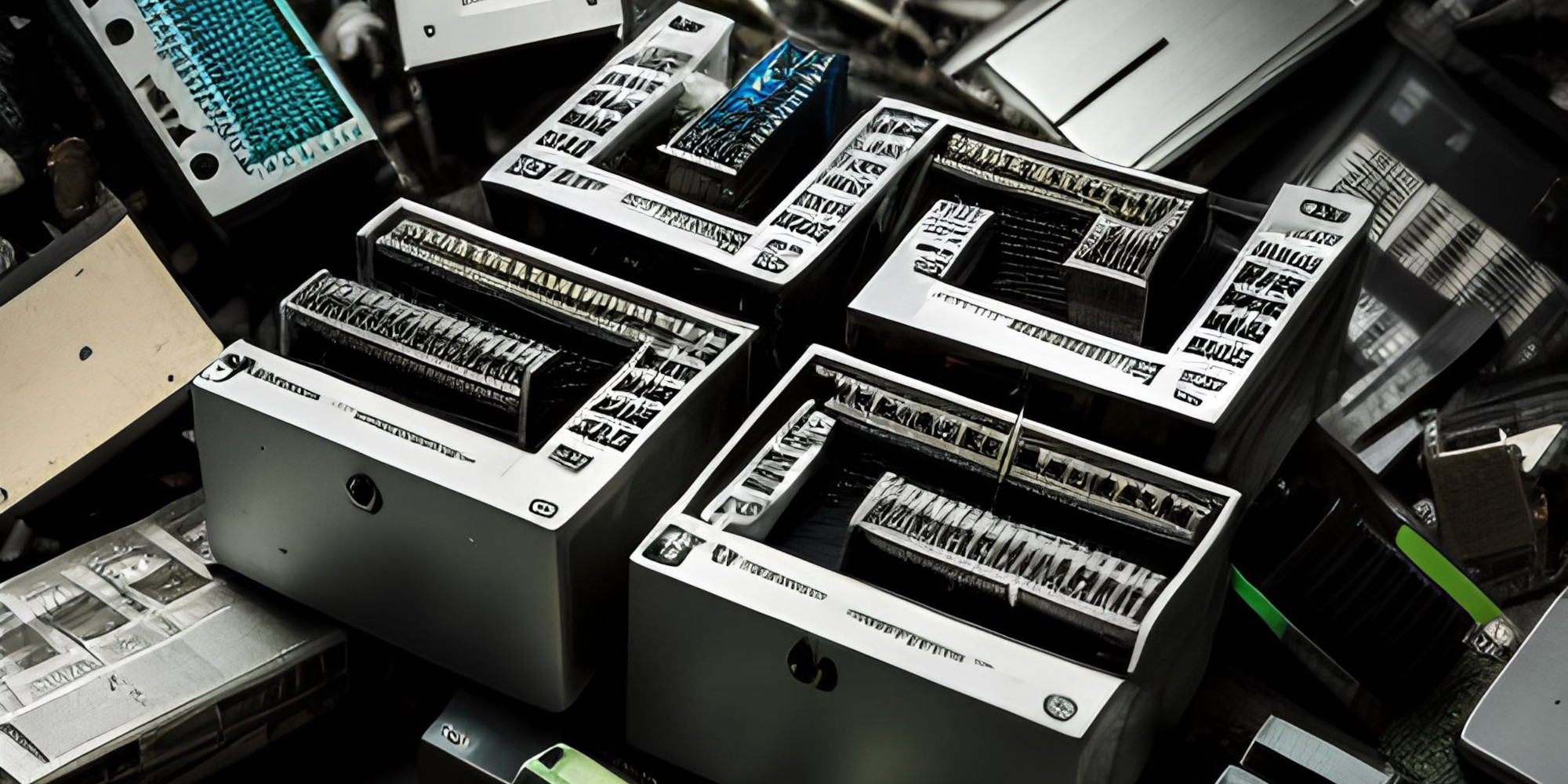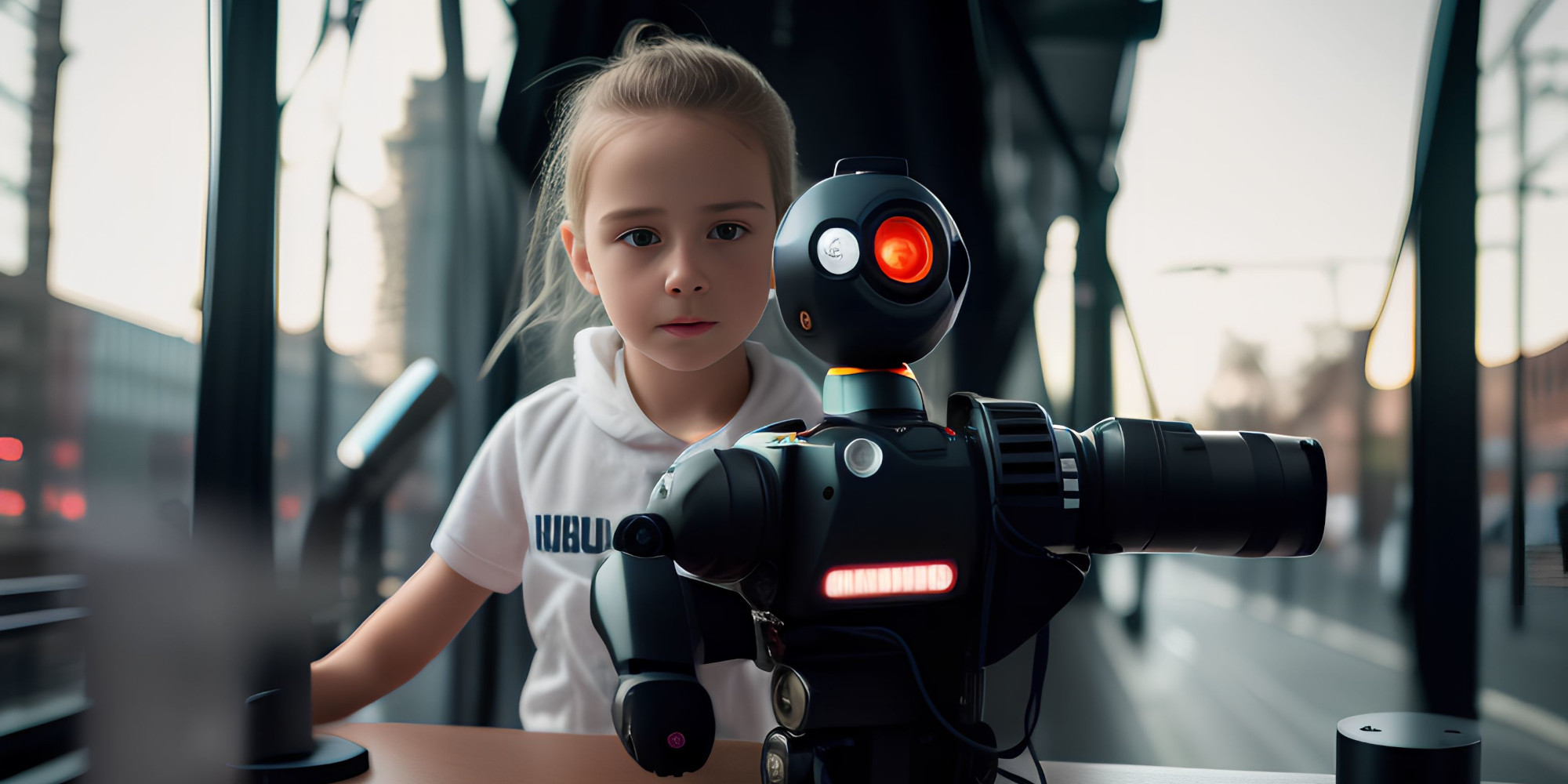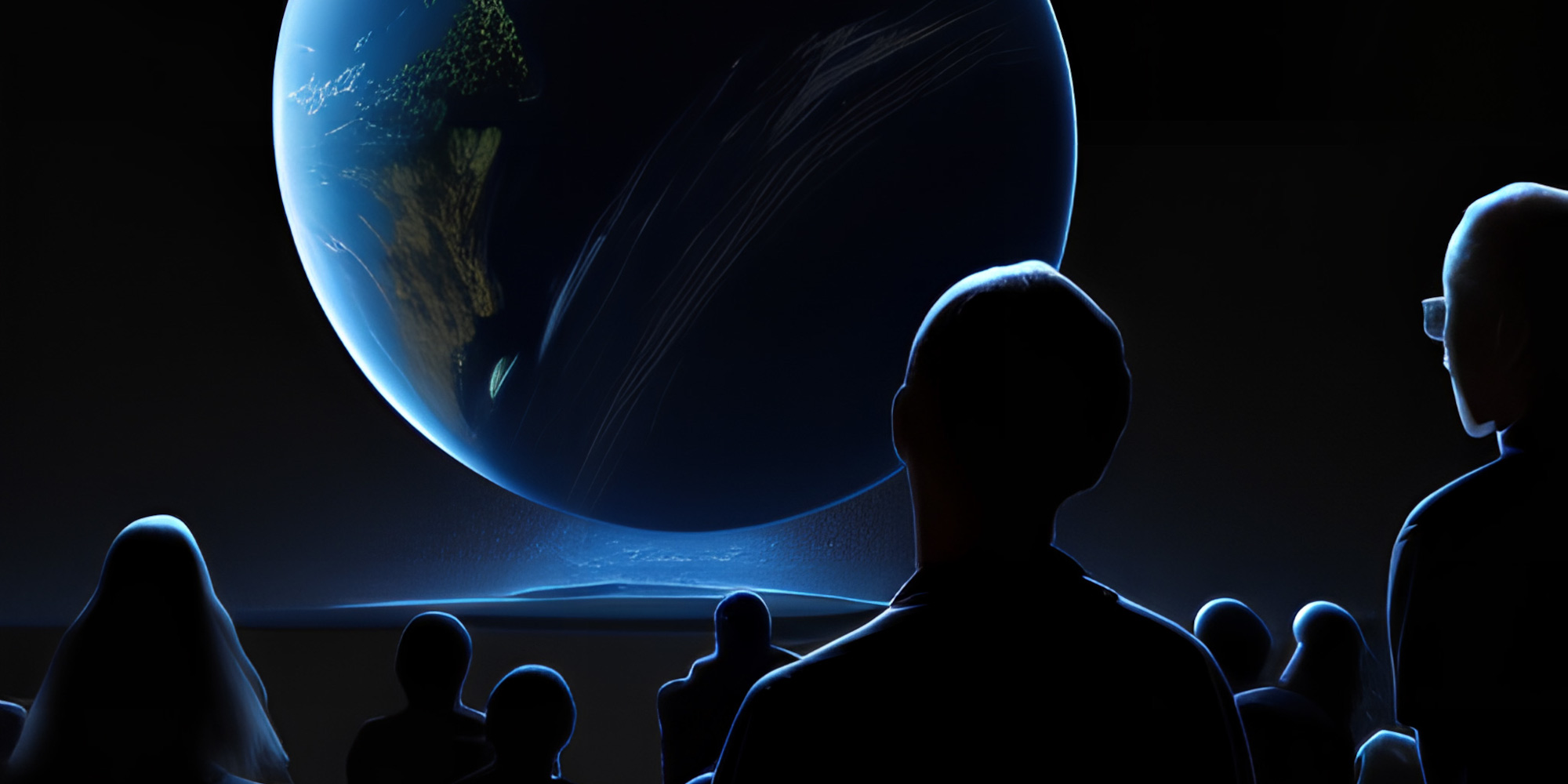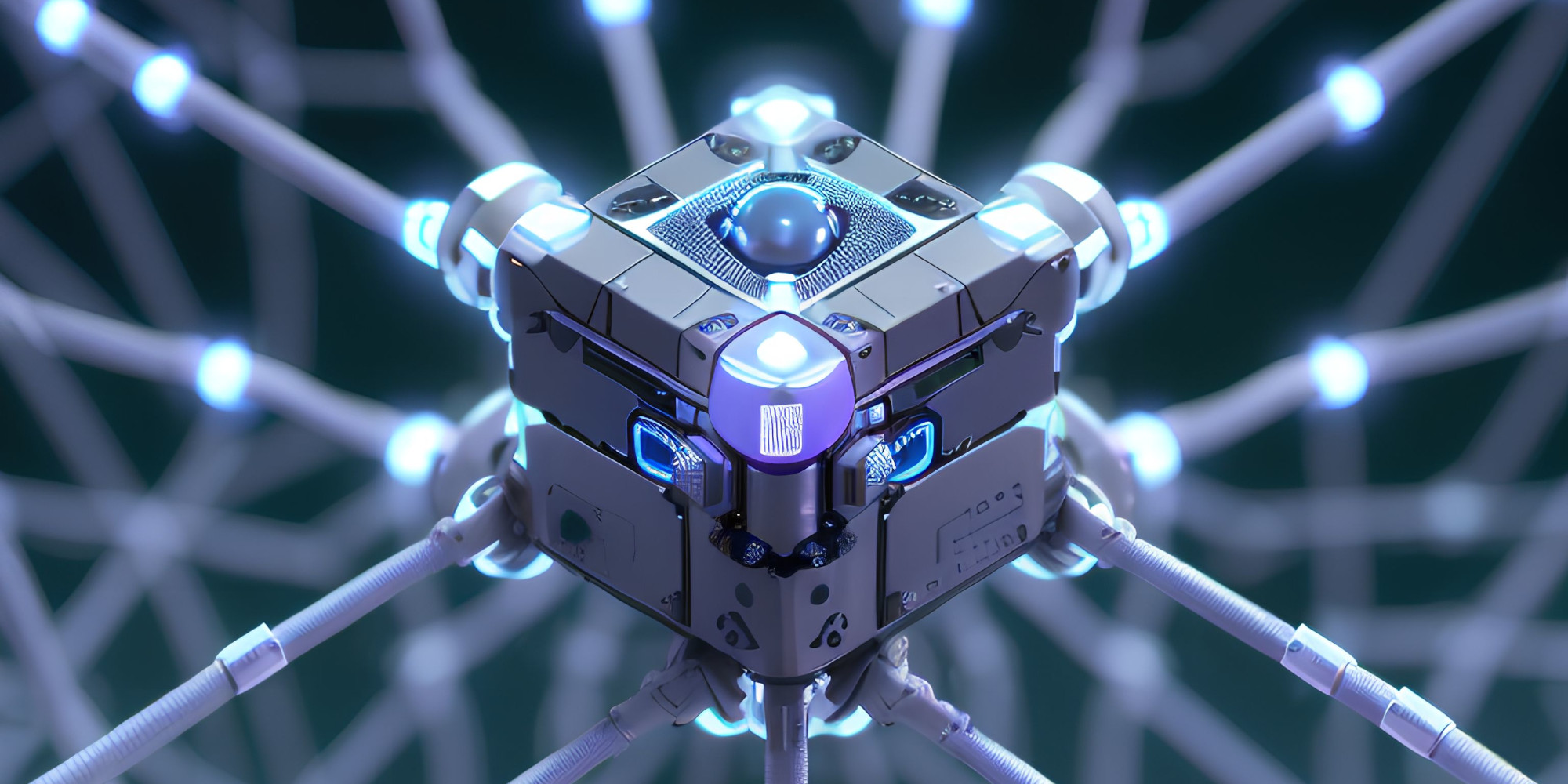Under the motto “Compass reloaded! Navigating the Future“, we will open the newly adapted exhibition areas of the Ars Electronica Center, newly opened in 2019, on THU May 11, 2023. Artificial Intelligence, neuro-bionics, genetic engineering and biotechnology have led to far-reaching changes around the globe. We have already been addressing these topics in our exhibitions since 2019, but today they are more topical than ever.
Four years ago, museum visitors were already able to test GPT-2 in our “Understanding AI” exhibition. GPT-2 was already able to generate coherent text segments on its own. That was already impressive, but with the new prototype ChatGPT, the developers, OpenAI, have gone a big step further: ChatGPT is an experimental chatbot that works with artificial intelligence and is able to answer questions in chat. The quality of the answers varies, but ChatGPT seems to have an answer to almost every question and has attracted a lot of international attention as a result.
In our newly adapted main exhibition, you can now try out ChatGPT for yourself and learn more about how it works. We tested it and asked ChatGPT a few questions about artificial intelligence in art, technology and society. The following text is the unabridged and unedited interview with the AI.

What is the difference between ChatGPT and conventional chat bots?
ChatGPT differs from conventional chatbots in a few key ways:
- Size and complexity: ChatGPT is based on GPT (Generative Pre-trained Transformer) technology, which enables it to understand and produce complex speech patterns and contexts. In contrast, conventional chatbots are usually based on simpler rules or pattern recognition.
- Learning ability: ChatGPT is a so-called “deep learning” algorithm that has been trained on a large amount of texts. This enables it to learn from experience and improve its responses over time. Conventional chatbots are usually not able to learn and their answers remain unchanged.
- Adaptability: ChatGPT is able to respond to a wide range of topics and questions because it has been trained on a broad set of texts. Conventional chatbots are usually limited to a specific topic or industry.
- Context awareness: ChatGPT is able to understand and respond to the context of a conversation. It can therefore take into account the meaning of a previous sentence and adapt its response accordingly. Conventional chatbots are usually not able to understand the context of a conversation.
Overall, then, ChatGPT offers significantly higher accuracy and flexibility than conventional chatbots, making it a powerful tool for a wide range of applications.

Why is it important to talk about Artificial Intelligence at the Ars Electronica Center, the “Museum of Art, Technology and Society”?
It is important to talk about Artificial Intelligence at the Ars Electronica Center because AI is a central part of today’s technology and society. AI has made significant progress in recent years and influences our daily lives in many ways, from personalising online content to automating processes in industry and healthcare.
As a museum of art, technology and society, the Ars Electronica Center is an important place to talk about the impact of AI on art, technology and society. AI has enormous potential to improve our lives, but it also poses challenges and risks that need to be discussed and addressed.
By engaging with AI at the Ars Electronica Center, visitors can develop an understanding of the possibilities and limitations of AI, discuss the ethical implications of AI and reflect on how we can ensure that AI is used in accordance with our values and goals. Furthermore, as a place of exchange between art, technology and society, the Ars Electronica Center can contribute to finding new ways to use AI to address societal challenges and improve human life.

Which impact does ChatGPT have on our society?
ChatGPT and other AI systems are already having a significant impact on our society. Some of the most important impacts are:
- Improved communication: ChatGPT can facilitate and improve communication between humans and machines. For example, ChatGPT can be used in customer service to answer queries quickly and efficiently.
- Personalisation: ChatGPT can offer personalised recommendations and services based on data analysis. This can help users find the information or services they need faster and easier.
- Automation: ChatGPT can be used in industry and healthcare to automate processes and improve efficiency. This can help to use resources more effectively and minimise errors.
- Privacy: ChatGPT requires access to large amounts of data to function effectively. However, this can lead to privacy concerns as sensitive data of users may be collected and used by AI systems.
- Labour market: ChatGPT and other AI systems may replace or change jobs in some industries. Dies kann zu Unsicherheit und Veränderungen im Arbeitsmarkt führen, insbesondere für Berufe, die von Automatisierung betroffen sind.
Overall, the impact of ChatGPT on our society can be both positive and negative. It is important that we consciously address these impacts and take steps to ensure that AI systems are used in line with our values and goals.

How intelligent can Artificial Intelligence be compared to Human Intelligence?
Artificial intelligence (AI) and human intelligence are intelligent in fundamentally different ways, making a direct comparison difficult.
Human intelligence is based on the ability to recognise complex patterns, gather and process knowledge and experience, solve problems, think creatively and understand and perform social interactions. Human intelligence is based on biological systems, such as the brain, and has a capacity for adaptation and creativity that has emerged through natural selection and evolution.
Artificial intelligence, on the other hand, is based on algorithms and computer programmes that aim to simulate human-like thought processes. AI systems can analyse data, recognise patterns, make decisions and also learn, but they function differently from the human brain. Some AI systems can perform certain tasks better than humans, such as certain types of calculations or pattern recognition, while other tasks, such as understanding natural language or solving abstract problems, remain difficult for AI systems.
So there is no direct comparison between human and artificial intelligence. Instead, both forms of intelligence have different strengths and weaknesses and are intelligent in different ways.

In which aspects of our lives will Artificial Intelligence play a role in 100 years?
It is difficult to predict how exactly Artificial Intelligence (AI) will be used in 100 years, but there are some areas where AI is expected to play an important role:
- Medicine: AI is likely to play an important role in medicine by helping to diagnose diseases, personalise treatments and monitor patients.
- Education: AI is also likely to play a role in education by providing personalised learning opportunities and helping teachers create curricula and assess student performance.
- Energy: AI can help optimise energy production and use by minimising the consumption of resources and accelerating the transition to renewable energy.
- Transport: AI can contribute to safer, more efficient and greener vehicles and transport systems in the area of transport.
- Agriculture: AI will also be used in agriculture by helping to monitor crop yields, optimise cultivation and harvesting methods and predict weather and climate conditions.
- Space: AI will play an important role in space travel by assisting in the control of spacecraft and in carrying out missions to distant parts of the solar system.
This list is not exhaustive and it is likely that AI will be used in many other areas. It is important to emphasise that the development and use of AI should be accompanied by societal and ethical considerations to ensure that it is used for the benefit of all people and the planet.
On Thursday, May 11, 2023 at 6 PM we cordially invite you to the opening of Compass reloaded! Navigating the Future!
At the theme weekend: Compass reloaded! Navigating the Future, on SAT May 13 and SUN May 14, 2023, you can explore the newly adapted exhibitions and test ChatGPT and other AI programmes yourself.
